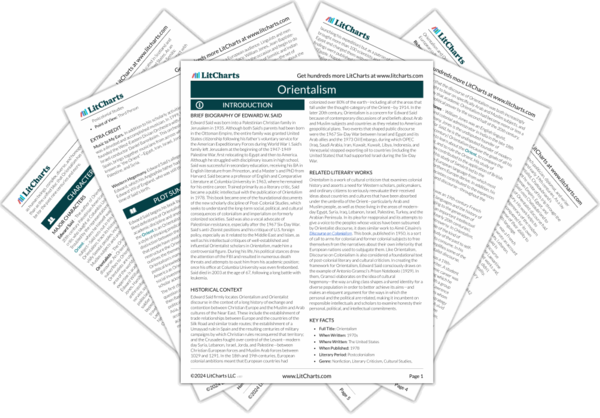At the outset of the book, Said explained that much of the urgency he feels in identifying and describing the history and functions of Orientalism lie in his personal experience, both as a scholar and as a Palestinian-American. It’s clear that this isn’t just an intellectual exercise but an urgent mission to counteract the harmful effects of a previously underexamined scholarly and social phenomenon. Although he doesn’t have a simple answer—indeed, the very breadth and depth of his analysis suggests that Orientalism is so deeply rooted that there could never be a simple or unitary solution—he does suggest some concrete steps, namely the urgent need for people to understand the ways in which their social, cultural, historical, religious, political, academic and all other kinds of contexts influence their thinking. Having shown the relationship between knowledge and power, Said now argues that knowledge
is power when it comes to dismantling and correcting discourses.
